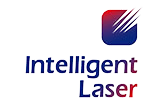In today's competitive manufacturing industry, ensuring quality control is more important than ever. Companies are constantly striving to improve their products, reduce waste, and increase efficiency. One tool that has become increasingly popular in quality control processes is the laser vision sensor.
Laser vision sensors are sophisticated devices that use laser technology and advanced algorithms to inspect and measure products with incredible precision. They are capable of detecting even the smallest defects and variations during production, making them invaluable tools for improving product quality. In this blog, we will explore the advantages of using laser vision sensors for quality control.
High Accuracy
One of the key advantages of the laser vision sensor is their exceptional accuracy. These sensors can measure dimensions, detect defects, and identify imperfections with incredible precision. This level of accuracy is essential for ensuring that products meet quality standards and specifications. By using laser vision sensors, manufacturers can catch defects early in the production process and make necessary adjustments to prevent costly rework or recalls.
Speed and Efficiency
Laser vision sensors including seam detector sensor are also known for their speed and efficiency. Unlike manual inspection processes, which can be time-consuming and prone to human error, laser vision sensors can quickly scan and analyze products in real-time. This allows manufacturers to identify issues immediately and address them before they impact production. By streamlining the inspection process, laser vision sensors can help companies save time and reduce costs associated with quality control.
Versatility
Another advantage of laser vision sensors including speciality vehicle sensors is their versatility. These sensors can be used in a wide range of industries and applications, from automotive manufacturing to electronics assembly. They can be easily integrated into existing production lines and customized to meet specific quality control requirements. Whether inspecting components for defects, measuring dimensions, or monitoring assembly processes, laser vision sensors offer a flexible solution for ensuring product quality.
Cost-effectiveness
Despite their advanced technology, laser vision sensors are surprisingly cost-effective. In the long run, investing in quality control with laser vision sensors can actually save companies money by reducing waste, improving efficiency, and minimizing rework. By detecting defects early in the production process, manufacturers can avoid costly recalls and ensure that only high-quality products are delivered to customers. This not only protects the brand reputation but also increases customer satisfaction and loyalty.
In conclusion, laser vision sensors offer numerous advantages for quality control in manufacturing. From their high accuracy and speed to their versatility and cost-effectiveness, these sensors provide a reliable and efficient solution for ensuring product quality. By incorporating laser vision sensors into their quality control processes, companies can improve their competitive edge, increase efficiency, and ultimately deliver better products to their customers.
